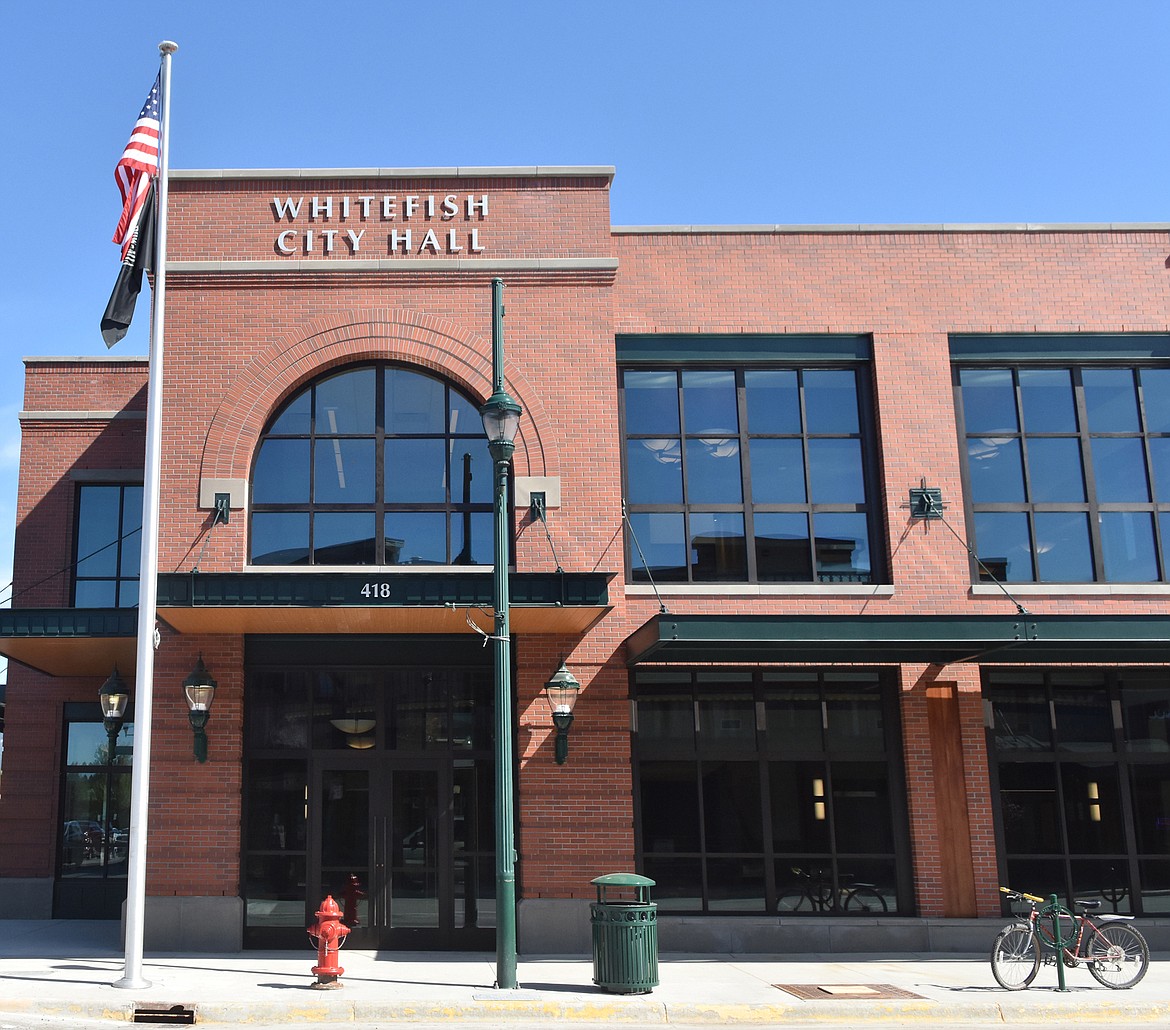Whitefish voters may decide resort tax changes
Whitefish leaders want to extend the city's resort tax and adjust how that money is spent on maintenance and improvements of streets, parks, bike and pedestrian paths, and other infrastructure.
The Whitefish City Council plans to hold a public hearing on the proposal in January and introduce a ballot measure sometime next summer. Voters would make the final call in November 2021. If approved, the changes would take effect in early 2025 and last for 20 years.
The resort tax, a sort of limited sales tax, is a 3% levy on food, drinks, hotel stays and other lodging, ski resorts and certain luxury items defined by city code. The city collected nearly $4.3 million in resort taxes during the 2020 fiscal year, which ended June 30.
The city remits 25% of resort tax revenue to landowners in the form of property tax credits, and businesses keep 5% to cover the costs of administering the tax, such as credit card fees. Of the remaining 70%, the city uses one-third to pay off debt on a conservation easement for the Haskill Basin, which provides the city's drinking water, and two-thirds on various street and park projects.
Previous resort tax ballot measures passed by large margins.
Whitefish voters first approved a 2% resort tax in 1995, with 56% voting in favor. In 2004, 76% voted to extend the tax through January 2025. And in 2015, nearly 84% voted to increase the tax to 3%, with most of that 1% increase going to the Haskill Basin easement. As of last year, a 3% resort tax is the maximum Whitefish can levy under state law.
The city expects to finish paying for the easement in early 2025, just as the resort tax is set to expire. Rather than return to a 2% levy, city staffers have proposed reallocating the 3% tax to increase funding for streets, parks, and bike and pedestrian paths.
"Right now, we believe that the benefits the resort tax provides would be better for the community than reducing it to 2% again," City Manager Dana Smith said Thursday.
In addition to providing some property tax relief, the resort tax is a main way the city capitalizes on its status as a tourist destination, Smith said.
"We know that we have a very large visitor base, based on the tourism for the valley," she said, "and to be able to capture some of those funds from our visitors and utilize it for improvements in Whitefish is really key."
DRAFT LANGUAGE recommended to the City Council by the city's Resort Tax Monitoring Committee would earmark 58% of all collected resort taxes for existing streets, sidewalks, storm sewers and underground utilities. Based on allocations from fiscal 2020, that's projected to increase annual funding for street and utility work by $650,000, for a total of nearly $2.6 million.
The proposal also would add the word "maintenance" to the city code, which currently provides only for "repair" and "improvement" of streets and utilities. In a memo to the council, Smith said that change would "allow for more flexibility and provide a funding source to maintain existing infrastructure that may not need a full reconstruction, such as a street or bicycle path overlay/patching compared to a full demolition and rebuild."
The proposal would make parkland acquisitions, park maintenance and equipment eligible for resort tax spending, in addition to capital improvements and bike and pedestrian paths. And it would earmark 10% of resort tax revenue for parks and recreation. That would be a projected $450,000 per year, triple the fiscal 2020 allocation.
According to Smith, the city should be spending about $130,000 per year on "proactive maintenance" of paved paths, which it hasn't been able to afford.
"The increase in resort tax allocation not only allows for the maintenance of current paths, but also the development of the long list of paths in the [Bicycle and Pedestrian] Master Plan that now has limited funding sources after the sunset of the Tax Increment District earlier this year," she wrote in her memo.
FINALLY, THE proposal would set aside 2% of resort tax revenue for maintenance and improvements to the Whitefish Trail, which aren't currently permitted under the city code. Under the proposed language, that money could not be spent to add miles to the trail, and it could be reallocated for other bike and pedestrian paths if it isn't spent within five years.
Following the public hearing in January, Smith said the city will focus on public education and outreach efforts about the resort tax "and all the projects that have been accomplished by it."
If the measure fails next November, the city would be able to try again in 2023 without the added cost of arranging a special election. Smith noted that Montana cities must meet certain population and commerce requirements for the right to levy resort taxes, and that means Whitefish could permanently lose its resort tax if it's allowed to expire.
"We went through that qualification process back in the ’90s when we first established a resort tax, and so we do not have to go back through that qualification process as long as we do not allow our resort tax to expire," she said. "If our resort tax expires today, we exceed the population requirements to implement a resort tax, so we would never be able to get it back."
Reporter Chad Sokol can be reached at 758-4434 or csokol@dailyinterlake.com


